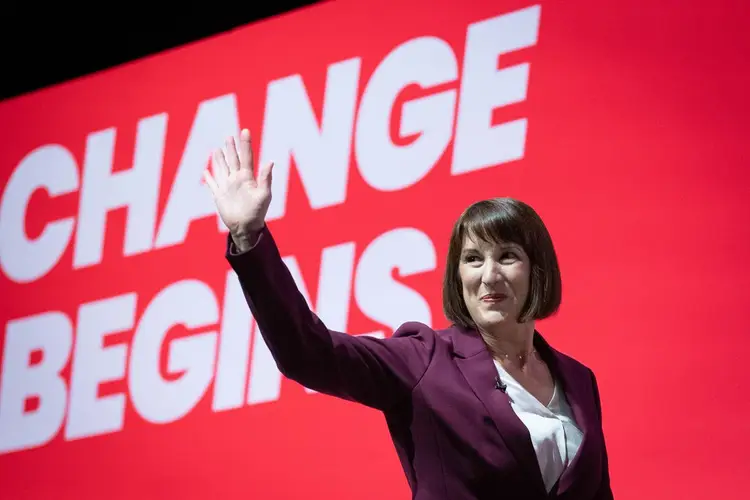Budget backlash intensifies as Rachel Reeves warned over inheritance tax hike

Subscribe For Expert Insights From Westminster
Subscribe For Your Free Westminster Update Email
Chancellor Rachel Reeves has been cautioned that her proposal to increase inheritance tax may unfairly affect middle-class property owners, as criticism of her Budget grows stronger.

Ms. Reeves is thinking about raising the "inheritance tax," which brings in approximately £7 billion for the Treasury annually, even though surveys consistently show that it is one of the least popular policies among voters.
Senior members of the Conservative Party argued that the chancellor is making lifelong savers "bear the burden," as backlash against her Budget grows.
Shadow Chancellor Jeremy Hunt claimed that Labour has been preparing to increase taxes for several months but lacks the honesty to acknowledge it to the public during the election campaign. He stated, "Sadly, it appears that those who have spent their lives saving to leave an inheritance for their families will bear the burden of Labour's tax hikes."
At the same time, Sir Iain Duncan-Smith expressed to The Independent that the tax would unfairly penalize everyday individuals who have put in significant effort.
Speaking about the £325,000 threshold for inheritance tax, the former Conservative leader mentioned, “We’re not discussing billionaires here. Given the property prices in southern England, you can't buy even a small apartment for that amount. In London, a two-bedroom flat would cost at least double that.”
A disagreement among cabinet members regarding significant spending cuts in the Budget has already surfaced, and the chancellor is facing scrutiny for various actions, including her choice to eliminate winter fuel payments for millions of elderly citizens.
Although the specifics of Ms. Reeves' plans are not fully known, Jason Hollands from Evelyn Partners, a consulting firm, cautioned that the proposed changes might lead to more middle-income earners having to pay the tax. Currently, this tax applies to 4 percent of estates.
"While only 4 percent of estates are subject to this tax, making it appear to have a minimal effect, this statistic doesn’t account for those actively working to minimize their estate size," he explained. "It's the beneficiaries, who are often not financially well-off, who bear the brunt of this tax."
At present, there is no inheritance tax for estates valued at £325,000 or less. If you own a house and leave it to your children, this limit increases to £500,000, provided your total assets are under £2 million.
A couple can take advantage of both allowances, which increases the maximum amount even more.
There are some exceptions, like giving away assets a minimum of seven years prior to passing away. However, for those who don't follow this rule, there is a fixed tax rate of 40% on the portion that exceeds the allowed limits.
Tax specialist Dan Neidle, who established Tax Policy Associates, noted that the tax strikes a strong emotional chord. He mentioned that even when people are informed that the tax primarily targets millionaires, they still strongly dislike it.
"It has many loopholes, and the wealthiest individuals end up paying a lower tax rate compared to those who are merely well-off," he mentioned.
Financial guru Martin Lewis, who discussed the Budget with Ms. Reeves on Thursday, cautioned that although the tax puts a heavier burden on the richest individuals, many more people than those actually subject to Inheritance Tax have a psychological fear of it.
A recent survey by YouGov revealed that only 27% of the public is in favor of increasing inheritance tax, while 60% are against it. Other surveys have repeatedly indicated that many people in the UK view this tax as unjust.
The £325,000 threshold has remained unchanged since 2009. As property values have increased, this has led to a larger number of individuals becoming liable for the tax. Those who are single or wish to leave their homes and savings to charities or friends, rather than their children, miss out on certain additional allowances.
As the baby boomer generation, born in the years following World War II, grows older—many of them now being 78 years old—their wealth is set to be passed down, which could lead to an increase in tax implications for more individuals, according to Mr. Hollands. This generation has seen significant economic growth since the war and has enjoyed a substantial rise in property values.
Mr. Hollands mentioned that the Labour party might consider tightening regulations on land and business allowances. These allowances were originally designed to prevent a farm or small family business from falling apart due to financial hardship. However, the government may believe that wealthy individuals who are neither farmers nor small business owners are taking advantage of this support.
While trusts don't completely eliminate taxes, they can provide some tax benefits. Setting one up involves transferring ownership of assets, but you can still retain control by serving as a trustee. Although creating a trust may come with high initial costs, if managed properly, it can save affluent individuals millions in taxes over many years.
Jacob Rees-Mogg, a former business secretary from the Conservative party, shared with The Independent that estate taxes compel individuals to sell their properties when they wouldn’t need to, in order to cover the tax obligations. He argued that this situation disrupts investment, which is crucial for economic growth.
"Raising it will slow down growth, making it more difficult to keep the finances in order."
John O’Connell from the TaxPayers' Alliance expressed that taxpayers are likely to be upset by the news that the chancellor plans to raise inheritance tax in the upcoming budget.
"With the limit already at a standstill, an increasing number of estates are facing this unfair tax, burdening mourning families with substantial bills when they are least prepared for it. Rachel Reeves needs to quickly dismiss any plans to increase this detested death tax."









































